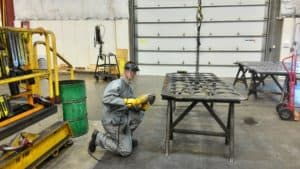By Kelly Munn, League of Education Voters State Field Director, and Jacob Vela, League of Education Voters Senior Policy Analyst
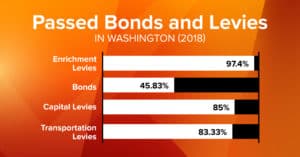 Last month, communities across Washington state voted on local levies to continue funding for enrichment programs and capital projects at district schools. Here are the election results and my analysis.
Last month, communities across Washington state voted on local levies to continue funding for enrichment programs and capital projects at district schools. Here are the election results and my analysis.
154 out of the 295 school districts in Washington state ran an Enrichment levy, and 150 passed. 42 levies passed because of simple majority, which is a 50-59.9% yes vote. Those districts that passed in the 50-55% range were mostly in the Puget Sound area.
24 school districts ran a bond, and 11 passed. 11 of the failed bonds would have passed with simple majority for bonds. Bonds currently pass only with a yes vote of 60% or greater.
60 school districts ran capital levies, and 51 passed.
6 school districts ran transportation levies, and 5 passed.
150 school districts passed an Enrichment levy. It does not yet appear that the confusion around the new McCleary funding is effecting the overall passage rate across the state. 150 out of 154 school districts passed. Superintendent Jim Kowalkowski explains what passage of the levy means for his Davenport School District: “We are excited that many of the programs we offer for students (College in the High School, Satellite Skills Center, Knowledge Bowl, All-day Preschool, Project Lead the Way (STEM) courses, Choir and Drama Programs, etc., will continue to be a part of our educational offerings. We are so grateful to have such a supportive community!” Read More

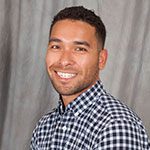 By Daniel Zavala, League of Education Voters Director of Policy and Government Relations
By Daniel Zavala, League of Education Voters Director of Policy and Government Relations Last month, communities across Washington state voted on local levies to continue funding for enrichment programs and capital projects at district schools. Here are the election results and my analysis.
Last month, communities across Washington state voted on local levies to continue funding for enrichment programs and capital projects at district schools. Here are the election results and my analysis.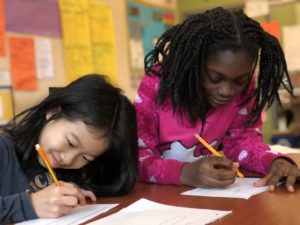 The Legislature made significant changes to the K-12 education funding structures in 2017—infusing more than $7 billion in state money into the system over four years through
The Legislature made significant changes to the K-12 education funding structures in 2017—infusing more than $7 billion in state money into the system over four years through 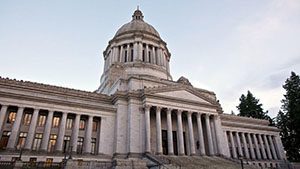 The Washington state Legislature passed a state budget agreement (
The Washington state Legislature passed a state budget agreement (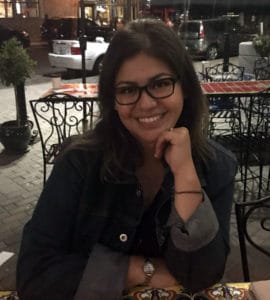 Nicole Portillo is a junior at the University of Washington Tacoma Campus. A College Success Foundation alumna, she now works as a CSF Navigator, peer mentoring incoming CSF scholars. She also works as a sales advisor for Costco in Tacoma. In addition to the State Need Grant, Nicole receives financial aid through the UW Tacoma Undergrad Tuition Exemption and the College Bound Scholarship.
Nicole Portillo is a junior at the University of Washington Tacoma Campus. A College Success Foundation alumna, she now works as a CSF Navigator, peer mentoring incoming CSF scholars. She also works as a sales advisor for Costco in Tacoma. In addition to the State Need Grant, Nicole receives financial aid through the UW Tacoma Undergrad Tuition Exemption and the College Bound Scholarship.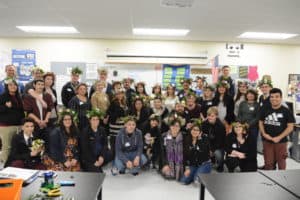 There are schools all across this state that are making dreams come true for their students.
There are schools all across this state that are making dreams come true for their students. More than 20,000 State Need Grant eligible students attending Washington higher education institutions are not currently receiving a State Need Grant because the program has not been
More than 20,000 State Need Grant eligible students attending Washington higher education institutions are not currently receiving a State Need Grant because the program has not been